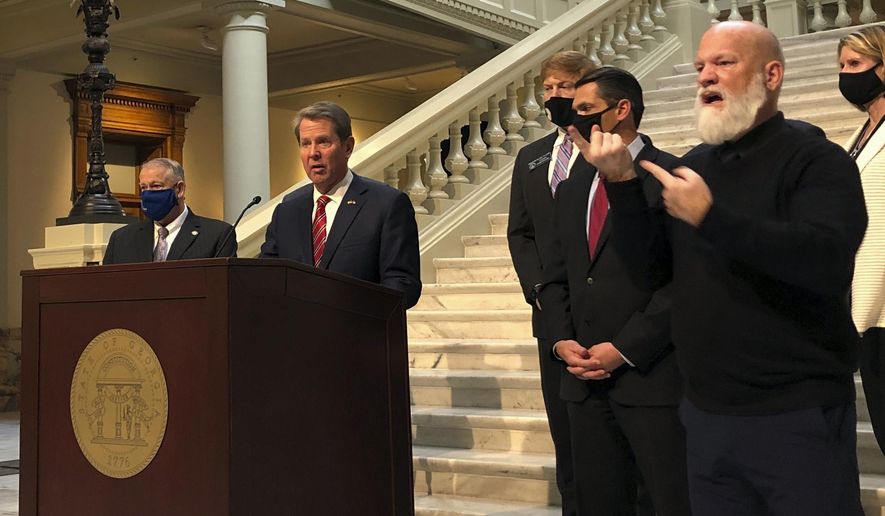ATLANTA (AP) - Georgia lawmakers approved their changes to the current year’s budget on Thursday, including more money for K-12 schools and public health along with $1,000 bonuses for more than 50,000 state employees.
The House and Senate agreed to the changes by overwhelming votes, sending House Bill 80 to Gov. Brian Kemp. A spokesperson said that he will sign it.
The measure spends $26.6 billion in state funds and $15.6 billion more in federal money in the current year ending June 30.
Lawmakers agreed with Gov. Brian Kemp’s plan to restore $567 million to the state’s K-12 school funding formula, which was cut by $950 million last year when lawmakers feared a steeper drop in revenue.
Overall, lawmakers cut $2.2 billion last June, or about 10% across the board.
Kemp and legislative leaders have also announced a plan to pay $1,000 bonuses to state employees making less than $80,000 yearly. The plan uses state funds that Georgia won’t have to pay toward the state-federal Medicaid health insurance program because the federal government is paying a larger share. The $59.6 million in savings will be spread out to about about 57,000 employees.
House Appropriations Committee Chairman Terry England, an Auburn Republican, told House members Thursday that “simple words” are not enough to thank employees for their work during the coronavirus pandemic.
“The savings we were able to capture there are the dollars we have put back in to say thank you to our state employees,” England said.
Kemp and state Superintendent Richard Woods earlier announced a plan to play $1,000 bonuses to most education employees using federal coronavirus relief money. A spokesperson for the University System of Georgia said Wednesday that regents are looking at mirroring what the state does for college and university employees.
The spending plan would give $27 million to the state Department of Public Health to track vaccinations and create an electronic appointment system for vaccination appointments, as well as money to bolster the department’s administrative ranks by funding a chief medical officer, deputy commissioner, chief data officer, senior programmer and financial manager.
Lawmakers approved about $40 million to buy 520 or more school buses for local districts. The measure also includes some additional money for universities and technical colleges.
Lawmakers approved Kemp’s plan to use existing funds to pay for 10% raises for correctional and juvenile detention officers. They stripped out a proposal to provide new ranks and educational pay incentives for state troopers. Senate Appropriations Committee Chairman Blake Tillery, a Vidalia Republican, said lawmakers would provide for that later.
The plan also spends $19.3 million more on reimbursement rates for nursing homes. Skilled nursing facilities say they are suffering from high costs and low occupancy because of the COVID-19 pandemic.
Lawmakers have already begun work on their spending plan for the next budget year, which begins July 1.
—
Follow Jeff Amy on Twitter at http://twitter.com/jeffamy.




Please read our comment policy before commenting.